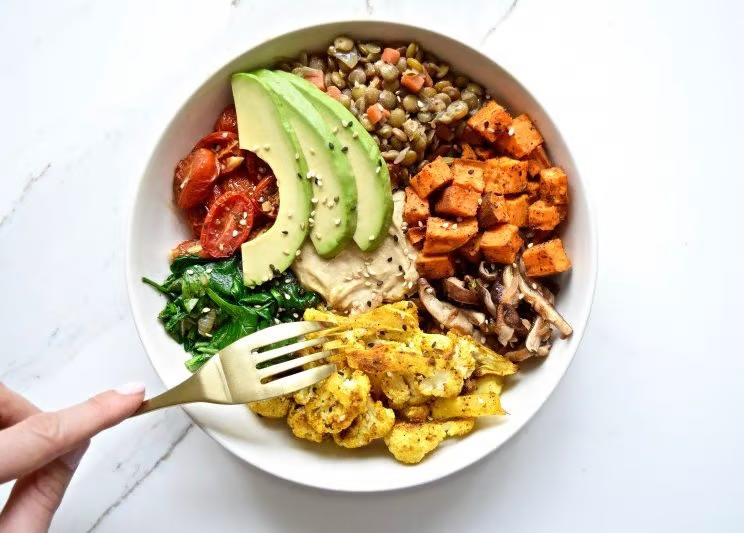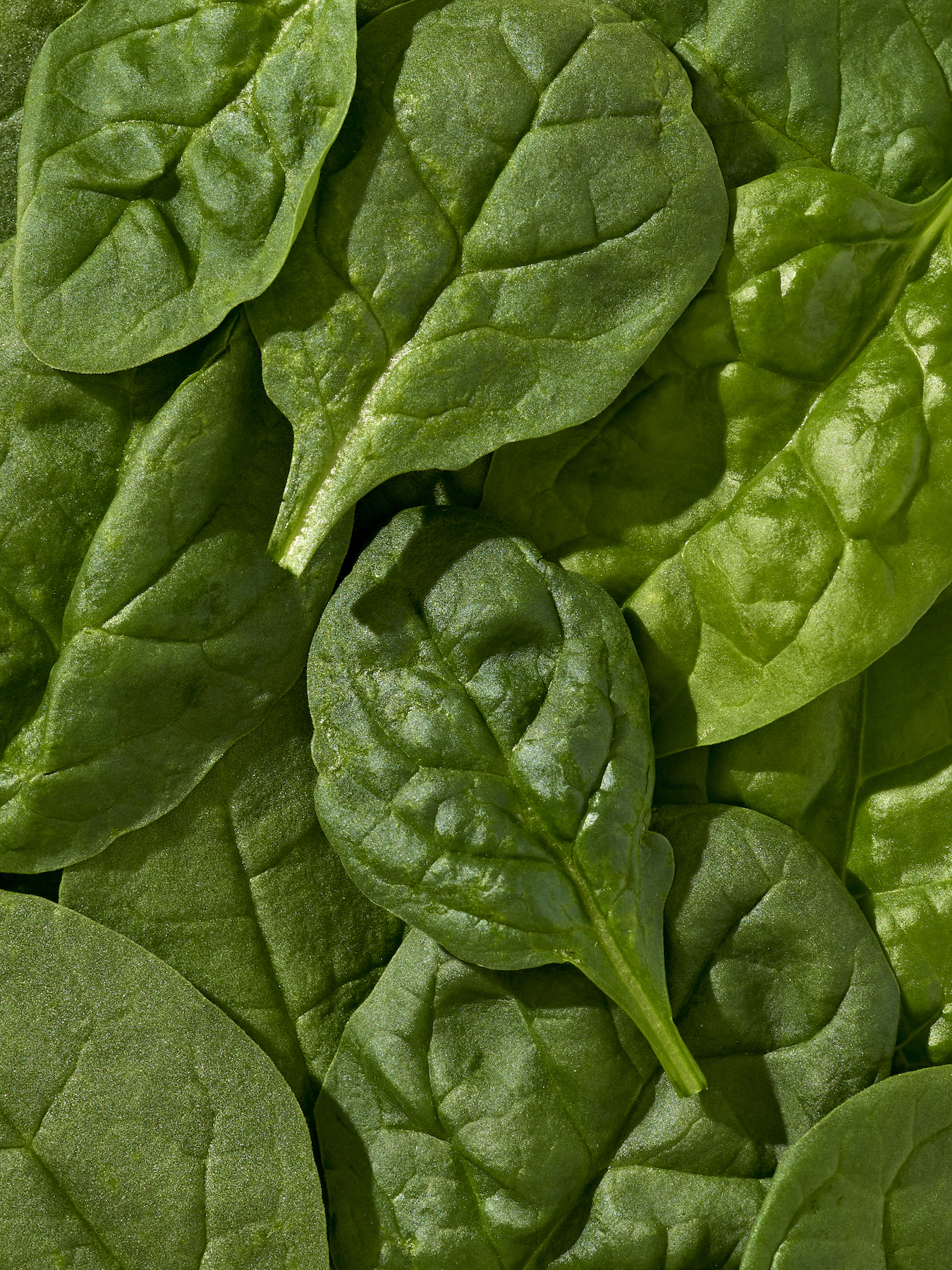Lectin-Free Diet: A Beginner’s Guide To Getting Started
The lectin-free diet is a dietary approach that has gained significant attention in recent years, particularly since the publication of "The Plant Paradox" by Dr. Steven Gundry. This diet focuses on eliminating or reducing lectin-containing foods, which some believe contribute to various health issues. In this guide, we'll delve deep into the lectin-free diet, its potential benefits, and whether it might be the right choice for you. We'll explore the foods that are high in lectins versus those that are low, helping you navigate this unique dietary path. We'll also examine how this diet fits into the broader context of managing conditions like autoimmune diseases and weight loss.
However, it's important to remember that while this guide offers a detailed overview, consulting with a healthcare professional or registered dietitian is essential for more personalized guidance to ensure you get the right balance of essential nutrients. Whether you're considering the lectin-free diet for health reasons or just curious about its potential benefits, this guide provides a clear and informative overview.
Do you find yourself constantly on the go but still want to indulge in healthy foods? The expert chefs at Hungryroot have crafted various delicious recipes, including healthy recipes and groceries delivered straight to your doorstep.
Whether juggling work, family, or other commitments, Hungryroot helps you enjoy mouthwatering foods without compromising your health goals. Get started today by taking our personalized quiz and start your health journey right from day one!
What is the lectin-free diet?
The lectin-free diet is a dietary approach centered around eliminating or significantly reducing lectins, a type of protein predominantly found in certain plant-based foods. This diet has gained traction in the health and wellness community, largely due to its association with the reduction of inflammation, improvement in digestive issues, and potential benefits for autoimmune conditions, although research is limited.
Lectins are a group of proteins that can bind to cell membranes. They are found in many plant-based foods but are exceptionally high in grains, legumes, and some vegetables and fruits. The reasoning behind the lectin-free diet is that these proteins can be resistant to digestion and may affect the gut wall, potentially leading to a variety of health issues. Some proponents of the diet, like Dr. Steven Gundry, author of "The Plant Paradox," argue that lectins can cause inflammation, disrupt digestion, and lead to weight gain and autoimmune diseases.
The diet involves avoiding foods high in lectins, which include grains like wheat, corn, and rice; legumes such as beans, lentils, peanuts, and soybeans; nightshade vegetables like tomatoes, potatoes, and eggplants; and some dairy products. Instead, the diet emphasizes consuming foods low in lectins, such as leafy greens, certain non-nightshade vegetables, pasture-raised meats, and specific nuts and seeds.
The lectin-free diet is somewhat controversial among nutrition experts. While some people report improved health outcomes after adopting this diet, limited scientific evidence supports the broad claims. Moreover, many lectin-containing foods are staples in various diets worldwide and are known to be rich in essential nutrients and beneficial for health. Therefore, eliminating these foods could potentially lead to nutritional deficiencies if not carefully managed.
As with any dietary change, it's crucial to consult with a healthcare professional or a registered dietitian before starting a lectin-free diet. They can provide personalized advice and guidance, ensuring that nutritional needs are met while exploring this dietary approach.
What are the benefits of adopting a lectin-free diet?
While still a topic of debate among nutrition experts, the lectin-free diet is associated with several potential benefits. Here are some of the claimed benefits:
- Reduction in Inflammatory Symptoms: Some people report a decrease in inflammation-related symptoms, particularly those with irritable bowel syndrome, and autoimmune conditions, after eliminating lectins from their diet.
- Improved Digestive Health: The diet may benefit individuals with certain digestive issues, eliminating foods believed to irritate the gut lining.
- Weight Loss: There are anecdotal reports of weight loss on the lectin-free diet, possibly due to the reduced consumption of processed foods and high-carb grains and legumes.
- Enhanced Energy Levels: Some followers of the lectin-free diet report increased energy levels, which could be attributed to the elimination of foods that might cause digestive distress and inflammation.
- Better Control of Blood Sugar Levels: By avoiding high-lectin grains and legumes, which are also high in carbohydrates, individuals might experience more stable blood sugar levels.
- Potential Reduction in Symptoms of Autoimmune Diseases: As the diet focuses on reducing inflammation, it might help in managing symptoms of certain autoimmune conditions.
It's important to note that while some followers of the lectin-free diet report these benefits, scientific research supporting these claims is limited. Therefore, anyone considering this diet should do so under the guidance of a healthcare professional or a registered dietitian to ensure it's appropriate for their health needs and circumstances.
What are the drawbacks of adopting a lectin-free diet?
The lectin-free diet, like any restrictive diet, has potential drawbacks that should be carefully considered. Here are some of the key disadvantages:
- Nutritional Deficiencies: Eliminating entire food groups that are high in lectin content, like whole grains, legumes, and certain vegetables, can lead to deficiencies in essential nutrients like fiber, vitamins, and minerals.
- Limited Scientific Evidence: There is limited scientific research to support many of the claims made about the lectin-free diet, which means its effectiveness and safety are not well-established.
- Restrictive Nature: The diet is quite restrictive, making it difficult to follow long-term and potentially leading to disordered eating patterns or an unhealthy relationship with food.
- Possible Reduction in Beneficial Gut Bacteria: Some high-lectin foods like legumes and whole grains are also high in prebiotic fibers, which are important for maintaining a healthy gut microbiome.
- Risk of Overemphasis on Animal Products: The diet could lead to an increased reliance on animal products, which might not align with the dietary preferences or health needs of all individuals.
- Potential Increase in Food Costs: Specialty items often recommended in the lectin-free diet can be more expensive than regular grocery items, potentially increasing food costs.
Before adopting a lectin-free diet, it's important to weigh these potential drawbacks against the perceived benefits and to consult with a healthcare professional or registered dietitian for personalized guidance.
Foods High in Lectins
Here are some of the most common lectin-rich foods and how to avoid them:
- Legumes: Beans (all varieties), lentils, chickpeas, kidney beans
- Whole grains: Wheat, rice, breads, oats, wheat, rye, barley
- Nightshade Vegetables: Tomatoes, eggplant, potatoes, peppers
- Squash and Gourds: Zucchini, yellow squash, spaghetti squash, butternut squash
- Dairy Products: Milk, yogurt, ice cream, cottage cheese
- Processed Meats: Bacon, sausage, hot dogs, deli meat
Foods Low in Lectins
- Leafy Greens: Kale, spinach, collards, Swiss chard
- Cruciferous Vegetables: Broccoli, cauliflower, Brussels sprouts
- Non-Starchy Root Vegetables: Carrots, turnips, radishes
- Herbs and Spices: Basil, oregano, thyme
- Healthy Fats: Avocado oil, olive oil, coconut oil
- Seafood: Salmon, tuna, shrimp
- Eggs and Dairy Alternatives: Coconut milk, almond milk, flax eggs
- Plant Proteins: Tofu, tempeh, seitan
- Whole Grains: Quinoa
Is the Lectin-Free Diet right for you?
Navigating the complexities of the lectin-free diet can be challenging, but we hope this guide has provided valuable insights to help you determine whether this diet aligns with your health goals and lifestyle. When considering a diet, especially for conditions like heart disease or leaky gut syndrome, it's crucial to balance its potential health benefits with any possible negative effects.
The lectin-free diet emphasizes avoiding foods believed to contain harmful lectins, which some think contribute to digestive issues, food sensitivities, and even broader health concerns. However, it's important to recognize the need for a balanced diet. Eliminating certain food groups may lead to nutritional deficiencies and overlook the benefits that many plant-based foods, some of which contain lectins, can offer. Consulting with a healthcare professional or a registered dietitian can provide personalized advice and help you maintain a balanced diet while exploring the lectin-free approach.
Remember, every individual's body reacts differently to various foods, and what works for one person may not work for another. This guide aims to give you a starting point for making informed decisions about your diet and health. Whether the lectin-free diet is right for you or not, the key is to focus on nourishing your body with various healthy foods while being mindful of your personal food sensitivities and nutritional needs.
We know life can get hectic, but sticking to your healthy lifestyle should be easy. That's why Hungryroot brings custom-selected, healthy groceries that magically turn into delicious recipes delivered right to your door. Our seamless process frees up your valuable time and helps you effortlessly embrace a healthy lifestyle. Let us be your trusted partner on your journey to health — because you deserve to feel good, inside and out.
Start your health journey by taking our personalized quiz to get your recipe and grocery recommendations.
Recommended Reading
- Easy, Whole30 Breakfast Ideas: Quick And Simple Recipes
- Tasty, Gluten-Free Breakfast Recipes For A Healthy Morning
- 10 Creative Breakfast For Dinner Ideas




